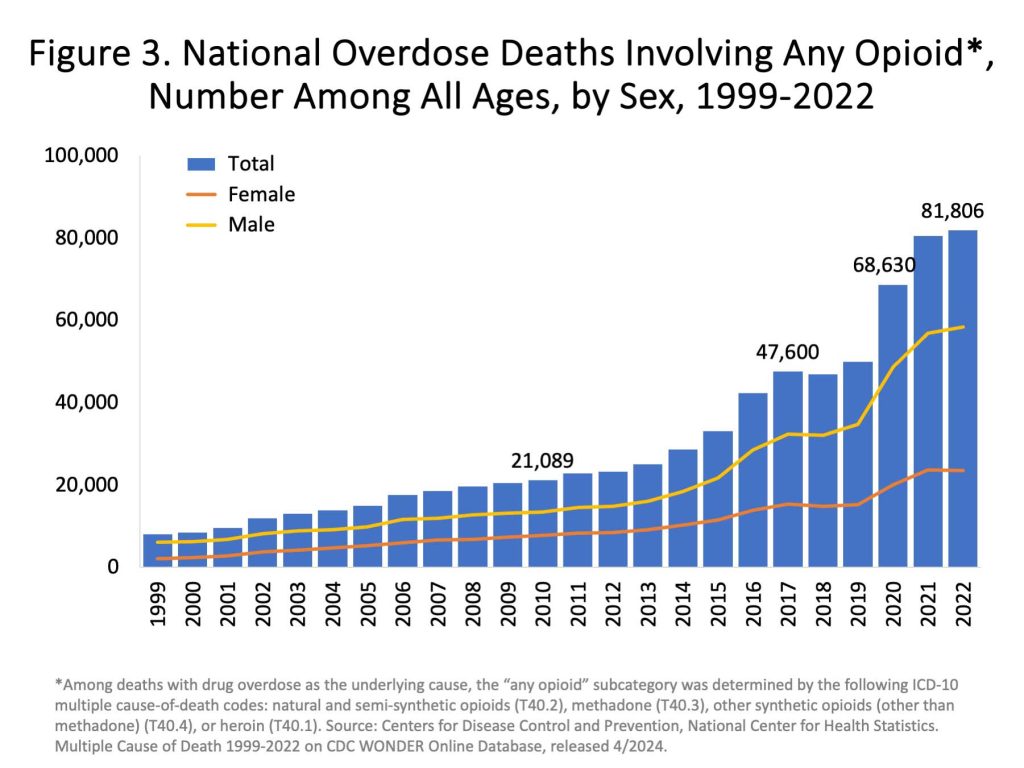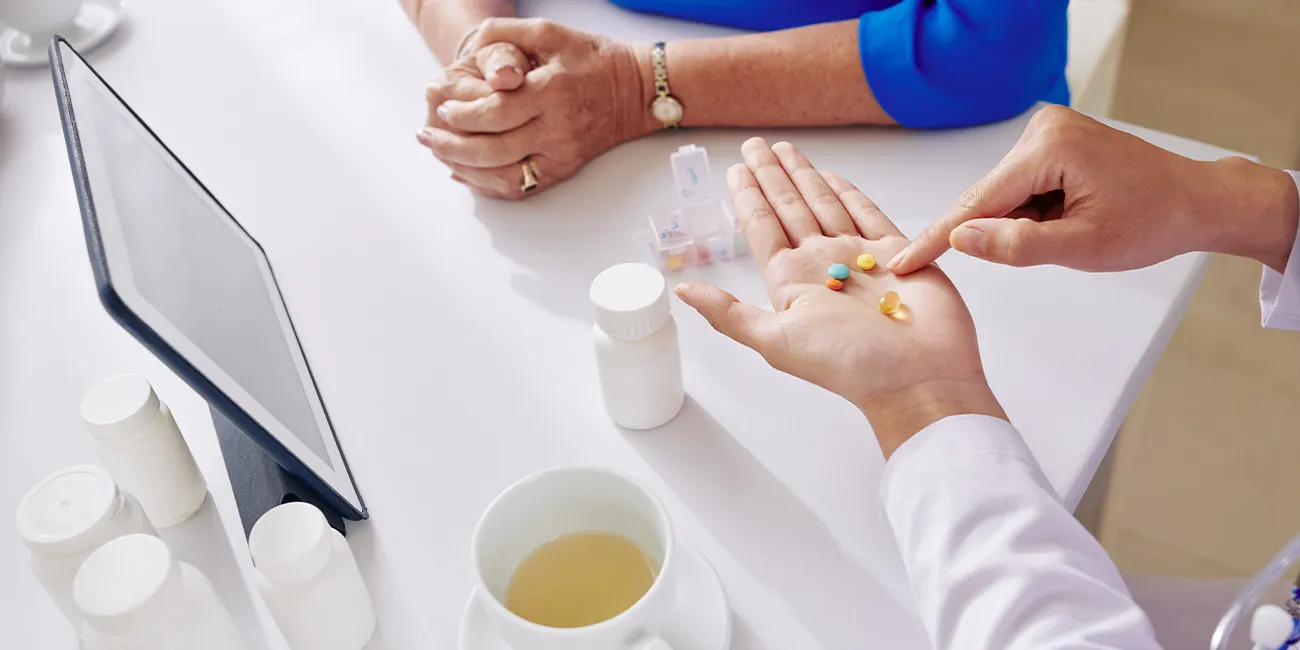Opioids are highly addictive, and their misuse can lead to serious health consequences, including death. According to the National Institute on Drug Abuse (NIDA), opioid-involved overdose deaths rose from 49,860 in 2019 to 81,806 in 2022:

Opioid use disorder (OID) is a serious medical condition that requires professional help. Addiction to opioids can have devastating effects, impacting physical and mental health, as well as relationships and overall quality of life. It can also impact work, causing absences, decreased productivity, and even job loss.
However, it’s important to understand that recovery is possible. With the right treatment and support, people with opioid use disorder can manage their addiction, reduce their risk of overdose, and rebuild their lives.
At AllOne Health, our Employee Assistance Programs provide confidential support and resources to help employees and their family members recover from opioid addiction. Services include access to:
- Licensed, professional counselors available 24/7 who can assess your situation, determine the next steps and refer you to appropriate treatment options.
- Specialists who can answer legal and financial questions and provide referrals.
- Confidential counseling services for you and your family members.
- Support and guidance through the recovery process
Recovery typically involves a combination of medication-assisted treatment, counseling, and support groups. Medications such as methadone, buprenorphine, and naltrexone can help manage cravings and withdrawal symptoms. Counseling and support groups can provide emotional support, teach coping skills, and help you build a support network.
It is important to take precautions to prevent opioid misuse and overdose. Prescription drug monitoring programs, state prescription drug laws, and education around safe storage and disposal can help in preventing prescription opioid misuse, and overdose.
If someone you know is struggling with opioid addiction, consider the following:
- Ask if you can help. Support from family, friends, co-workers, and others makes a difference in the recovery process.
- Be supportive and work to reduce stigma. Stigma can stop people from seeking help for their condition. Recognize that opioid addiction is a medical condition, not a moral failing.
- Carry Naloxone, which can reverse an overdose and prevent death. It is a non-addictive, life-saving drug that can reverse the effects of an opioid overdose when administered in time. A person who takes or is given Naloxone should get emergency medical care as soon as possible. Naloxone is available without a prescription, but specific details vary from state to state.
Remember, opioid addiction is a treatable medical condition. With the right support and treatment, recovery is possible. If you or someone you know is struggling with opioid addiction, Employee Assistance Programs can be a tremendous resource. To learn more, visit AllOne Health Assistance Programs.


